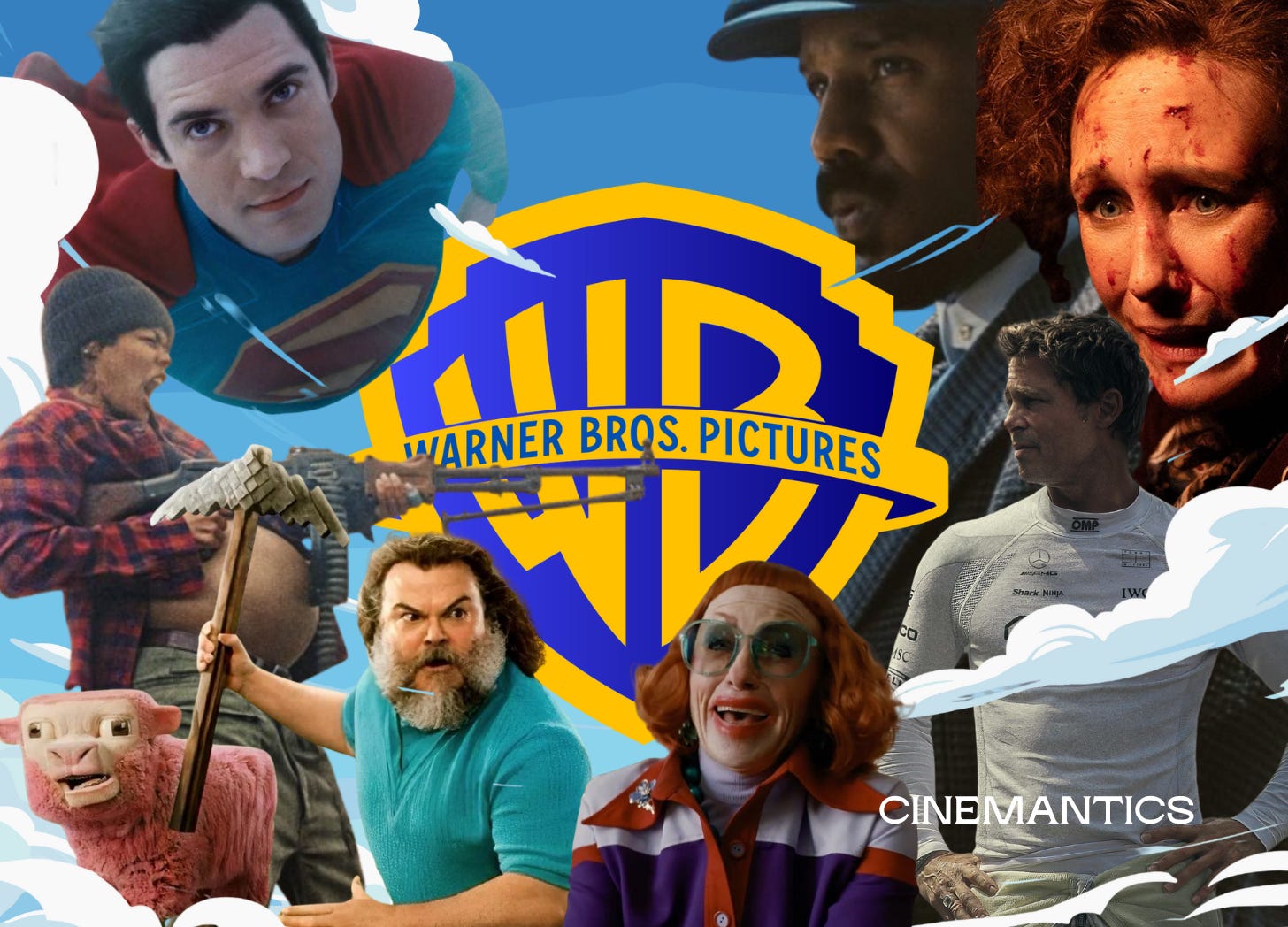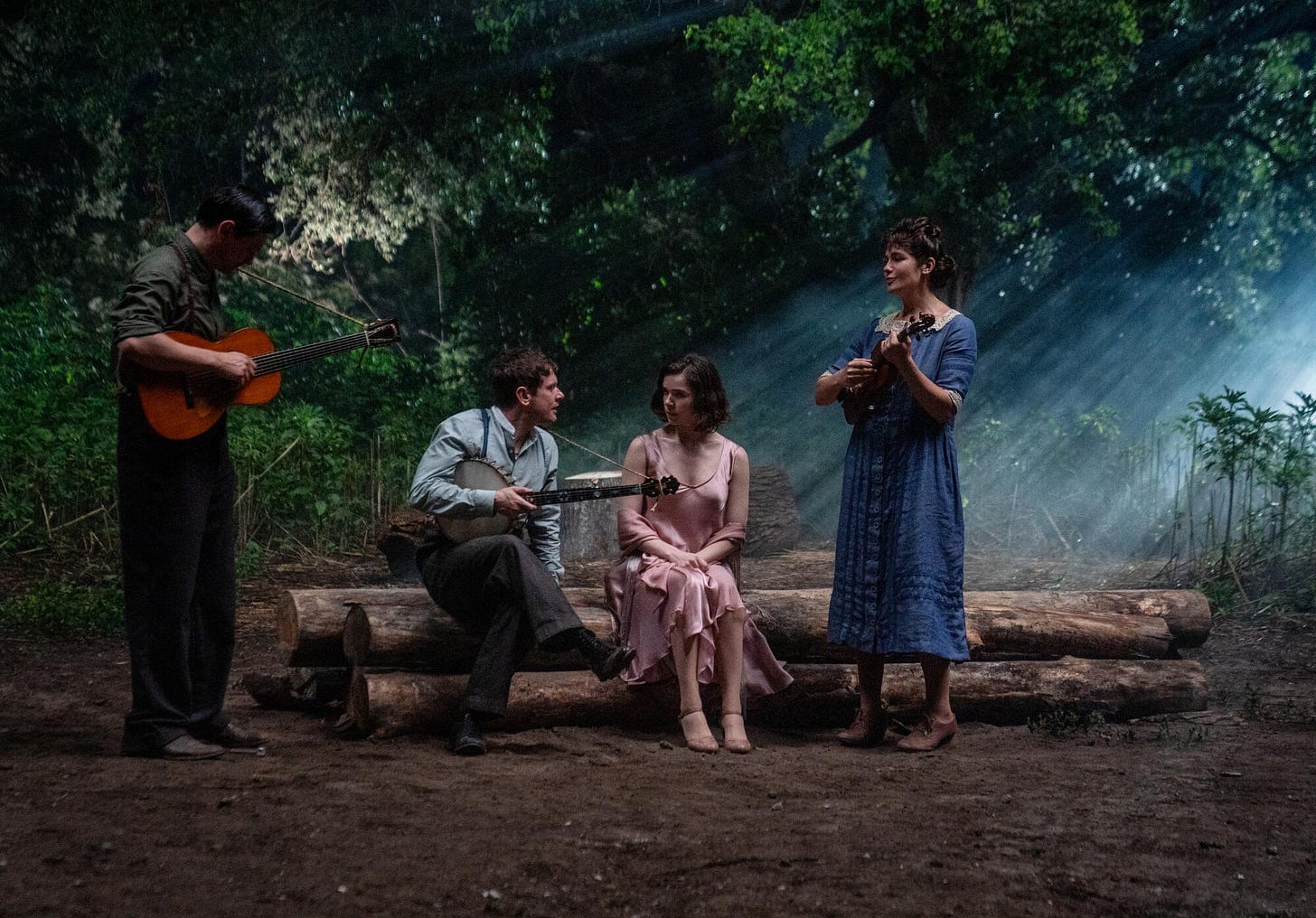On Warner Bros. Surprising, Successful, Very-Good Year
Non-Sequel, Auteur Driven, Original Genre Flicks Dominated 2025
It’s the Hollywood story no one expected. After the disaster of 2024’s Joker: Folie à Deux and underperformance in the first quarter of the year, punctuated by two high-profile disappointments in the DeNiro gangster drama The Alto Knights and Bong Joon Ho’s sci-fi satire Mickey 17, Warner Bros. Pictures was on the hot seat.
So were those in charge. It was Hollywood’s worst-kept secret that the company’s film czars, Michael De Luca and Pamela Abdy, were going to be axed. The studio’s unorthodox slate of films for the year—dominated by either new IP, horror, or auteur-driven original fare—was the subject of much scrutiny and fear.
It wasn’t an unfounded concern. The IP was unproven, original fare had had little success at the box office in the last decade, and the superhero industrial complex was falling apart in dramatic fashion.
Then the narrative changed.
First came A Minecraft Movie, an irreverent, silly comedy based on a popular video game, which was followed two weeks later by Sinners, an original gothic horror film from Oscar-nominee Ryan Coogler. The movie still holds the title of my favorite flick of the year. In one month, the studio’s fortunes reversed. Everyone forgot about the disaster of 2024. Here was a studio that found success in tapping into both new IP that resonated with what young people are actually engaging with and an original film that blended sociopolitical commentary into what is unquestionably the most satisfying blockbuster in a long time.
By the time that Paul Thomas Anderson’s three-hour, original epic One Battle After Another crossed $185 million internationally this week, Warner Bros. set a Hollywood record—seven consecutive films from the studio opened to over $40 million domestically. They’re the first studio this year to cross $4 billion in international revenue. Even when the hot streak broke in late September, One Battle still managed to open number one domestically and recoup its production budget.
The story of Warner Bros.’ historic successes with an unorthodox slate reveals that things are changing —and, hopefully, for the better.
What lessons can we take away?
1. Original films must be event films, too
Of Warner Bros.’ eight successful films released between April and September, half of them — Sinners, F1, Weapons, and One Battle After Another were original concepts. Genre-wise, they span comedic adventure, horror, and sports drama, but what made them work in the marketplace was they were all marketed as event films. Here were experiences you simply had to see on the big screen. Leaning into the IMAX, 70MM, and VistaVision formats only heightened the online chatter around these flicks.
The culture vacuum left by waning interest in superhero films has created a moment in movie culture where original films can recapture some of their glory.
A tertiary observation on this: All four films are directed by respected auteurs. They each have passionate fans on Film Twitter ready to jump into the fold to defend the filmmaker from any critique. Part of the marketing campaigns for each film was to emphasize the filmmaker and their credits. “Come to F1, it’s made by the same guy who made Top Gun: Maverick!” “Did you like Black Panther? We got a vampire flick from the same director.” “The dude who made ‘Boogie Nights’ just made a comedy epic with Leo DiCaprio.”
I’ve been critical in the past of filmmakers who risk their personal fortunes on original ego-driven vanity projects that fail to take off. These four consecutive original successes does prove my argument correct: Even the best directors need an opposing force within the studio to push back and reign in.
2. Horror is the new genre king
Half of the eight success stories this year were original. Half were also horror films — Sinners, Final Destination: Bloodlines, Weapons, and The Conjuring: Last Rites. A fifth, Companion, was released this January but garnered more positive attention after it was released to HBO Max. After the Prestige Horror craze swept the world with films like Get Out and Hereditary, one thing is clear after 2025: The Age of Horror has arrived.
It makes sense why. It is perhaps our most malleable genre, capable of being both popcorn entertainment of the highest order and the most penetrating commentary. Sure, we go to horror flicks for the scares. But we think about them long after the credits role because of what they’re trying to say. The 2025 Warner Bros. slate gave us a little bit of both, proving the versatility of the genre.
Expect to see Warner’s genre subsidiary New Line Cinema lean even more into horror in the years come, as other studios begin to play catch up.
3. Audiences reward variety
Originally feared to be a disaster in the wings, Michael De Luca and Pamela Abdy’s decision to invest so much time, talent, and treasure into a diverse slate of films this year paid off ten-fold. The proof: Warner Bros.’ films amount to over a quarter (27%) of the marketshare this year. They have sold 163 million tickets and $2 billon in domestic gross — outpacing Disney by twenty million tickets sold and several hundreds of millions of revenue.
The House of Mouse helps prove the point. Increasingly relying on legacy IP, Disney has struggled since making the business decision to continuously resurrect old franchises from the 80s and 90s. They’re trying to drag young people to what they think is cool. But the kids aren’t budging. And with little original fare or attempts to meet young people where they are (apart from this year’s Lilo and Stich), they’ve struggled to bring in the revenue that they’ve grown accustomed to in the last twenty years of movie dominance. Tron: Ares is just the latest example of this trend.
Warner Bros’ creative risk bet on the premise that audiences craved more than what’s been creatively regurgitated for the last forty years. That original and new can be, when made responsibly and well, even more rewarding for the consumer and the bottom line. After 2023 ended with three non-sequels in the top three spots on the highest-grossing films list, Warner Bros. success story shows that we might finally be seeing the light at the end of the legacy IP tunnel.




